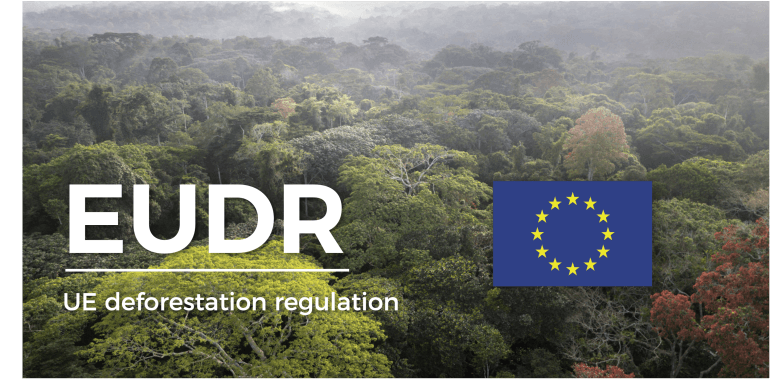

25.09.2025
The European Commission has proposed, for the second time, to delay the implementation of the EUDR, citing technical difficulties. Despite this new setback, ATIBT remains committed to ensuring that the regulation is implemented in a way that is both environmentally ambitious and pragmatic for field operators.

On 23 September 2025, the European Commission announced its intention to postpone by one year the application of the EU Deforestation Regulation (EUDR). This would move the implementation deadlines from 30 December 2025 to 30 December 2026 for large companies, and from 30 June 2026 to 30 June 2027 for SMEs.
At this stage, this is only a proposal: it still needs to go through the institutional validation process (Parliament and Council), and be formalised via a regulatory amendment. The coming weeks will be decisive, although a parliamentary majority in favour seems likely.
A decision that raises concern
At ATIBT, this announcement has been met with disappointment. The EUDR, promoted as a flagship initiative of the European Green Deal, was adopted in June 2023. Two and a half years later, it is regrettable that the institutions behind it are not yet ready to ensure its implementation, now citing delays in the TRACES platform and the need for simplification.
We see this as a politically risky signal. This delay creates major regulatory uncertainty, undermines the efforts of operators who have already prepared for compliance, and opens the door to future attacks on the ambition of the regulation.
This is all the more worrying in the current climate, under pressure from some European stakeholders calling for a deep revision of the regulation – including the introduction of a “zero-risk” category, which would disproportionately disadvantage tropical producer countries.
ATIBT stays the course
Despite this postponement, ATIBT maintains its strategic position:
Clear-eyed about operational challenges
Recent feedback from our members has highlighted several key areas of concern, particularly post-importation:
We do not minimise these concerns. They are legitimate, and we will actively bring them into the upcoming discussions on technical adjustments to the EUDR. However, we believe these improvements should come from practical experience and feedback — not from reopening the legislative text, which would only weaken the framework further.
Ongoing advocacy efforts
Despite the announced delay, ATIBT continues its advocacy work alongside partners who share our commitment to defending the EUDR:
These engagements are key opportunities to raise the voice of certified tropical operators, to highlight your concrete efforts, and to propose targeted simplification measures.
In conclusion
The EUDR represents a real opportunity for responsible supply chains — if its implementation is realistic. ATIBT remains committed to being a clear-eyed, constructive, and demanding actor, advocating for a regulation that is both ambitious and applicable.
We remain available to collect your feedback, which will feed into our next technical memo on necessary adjustments, and will keep you informed of any developments.